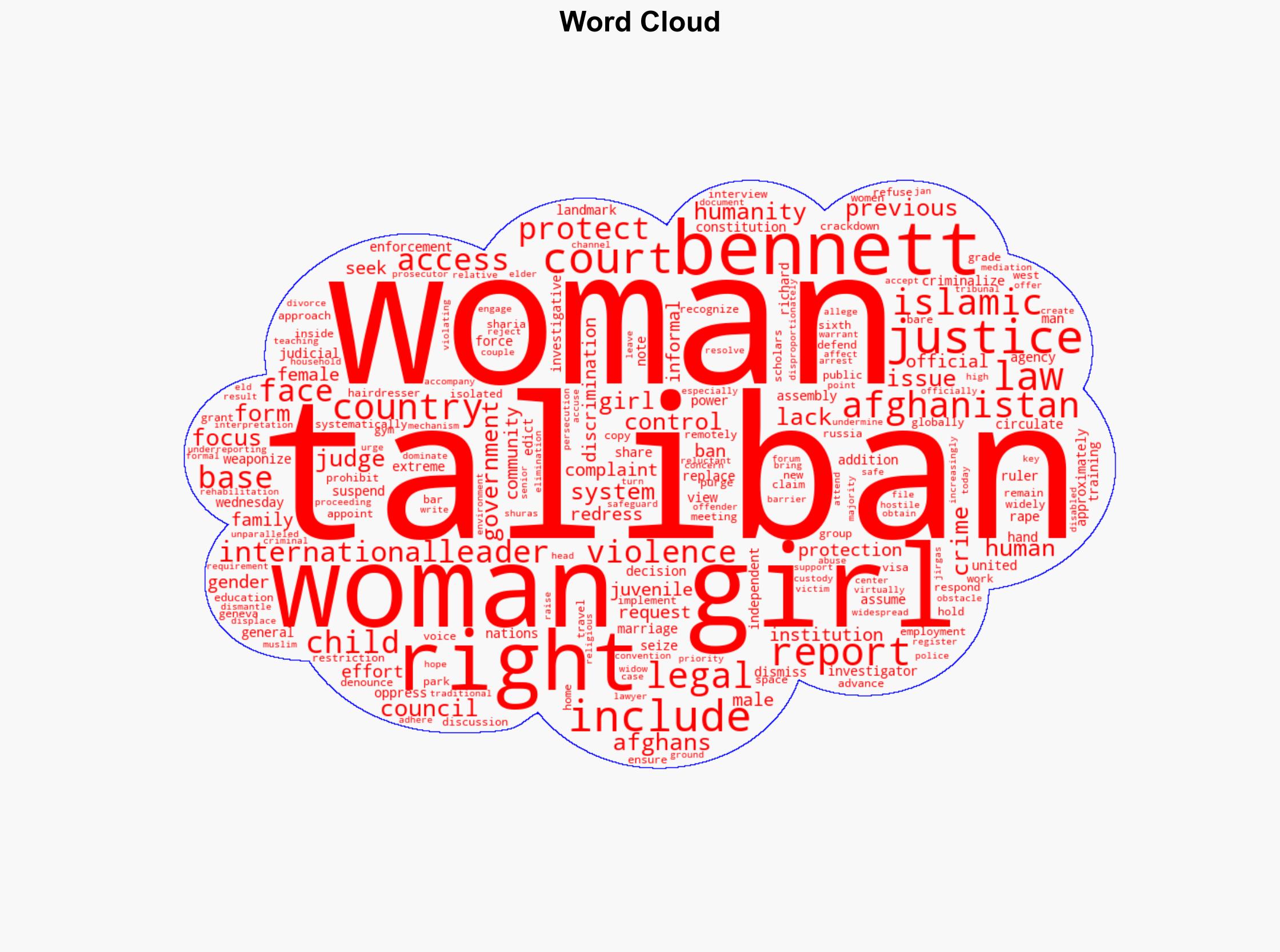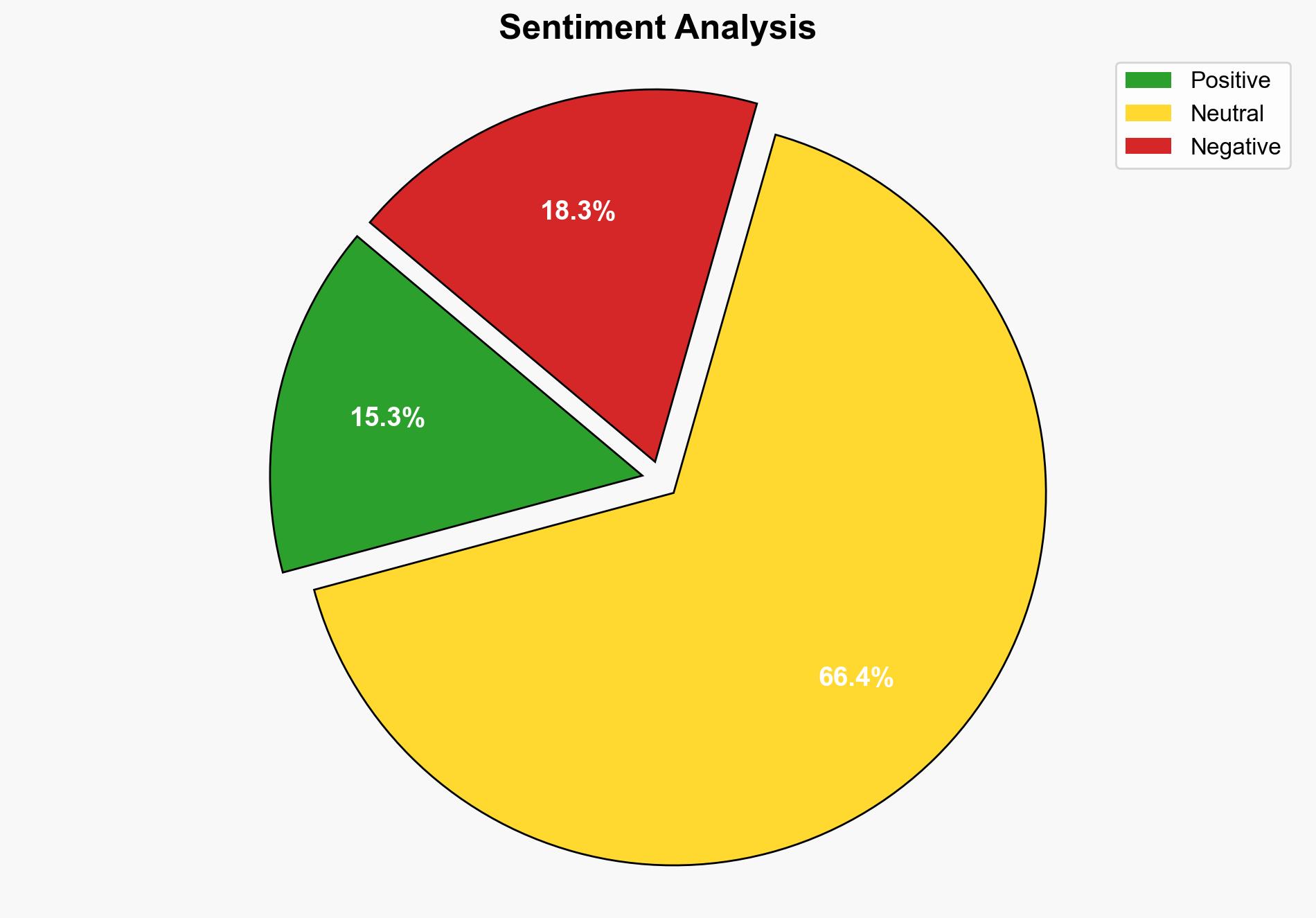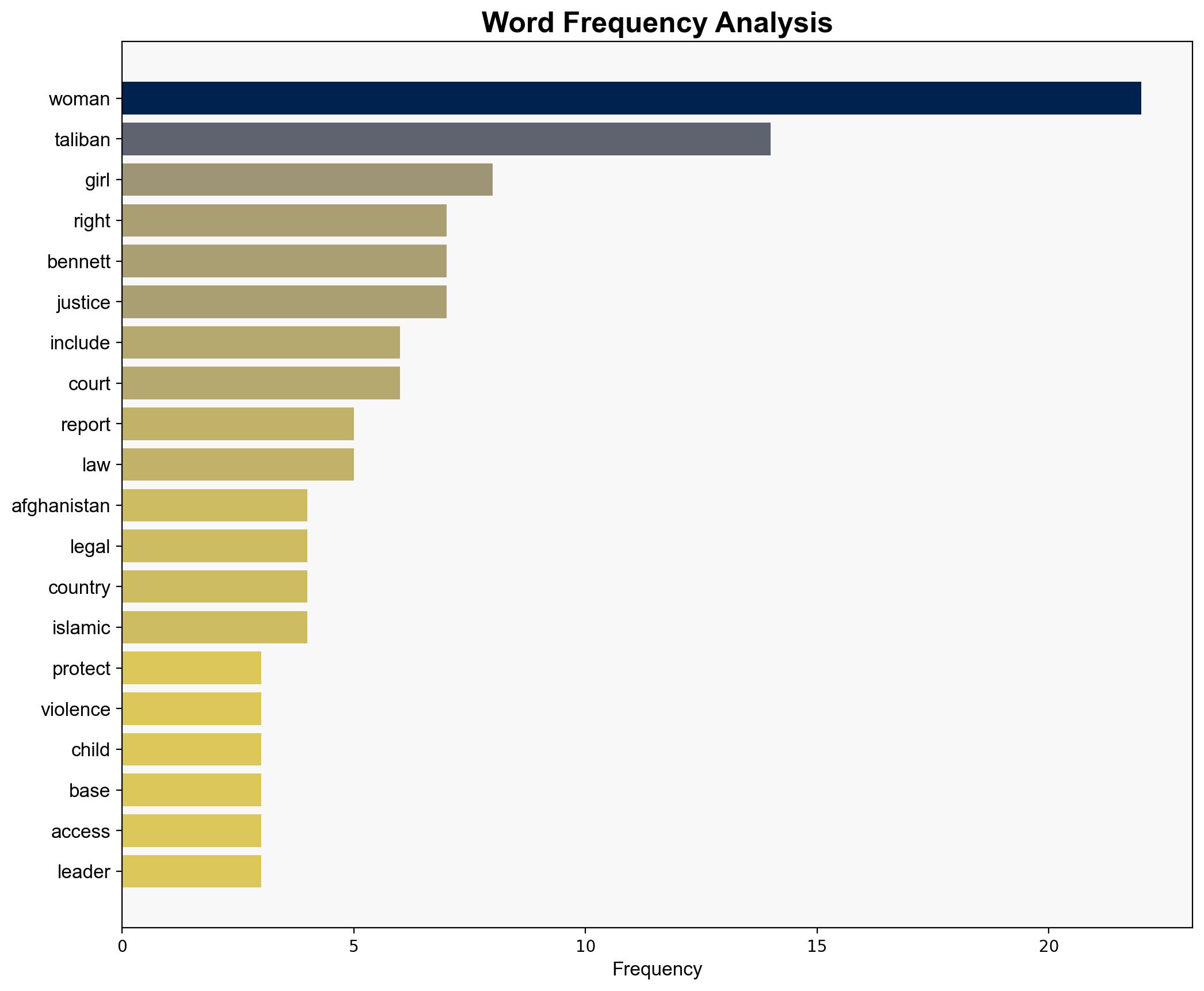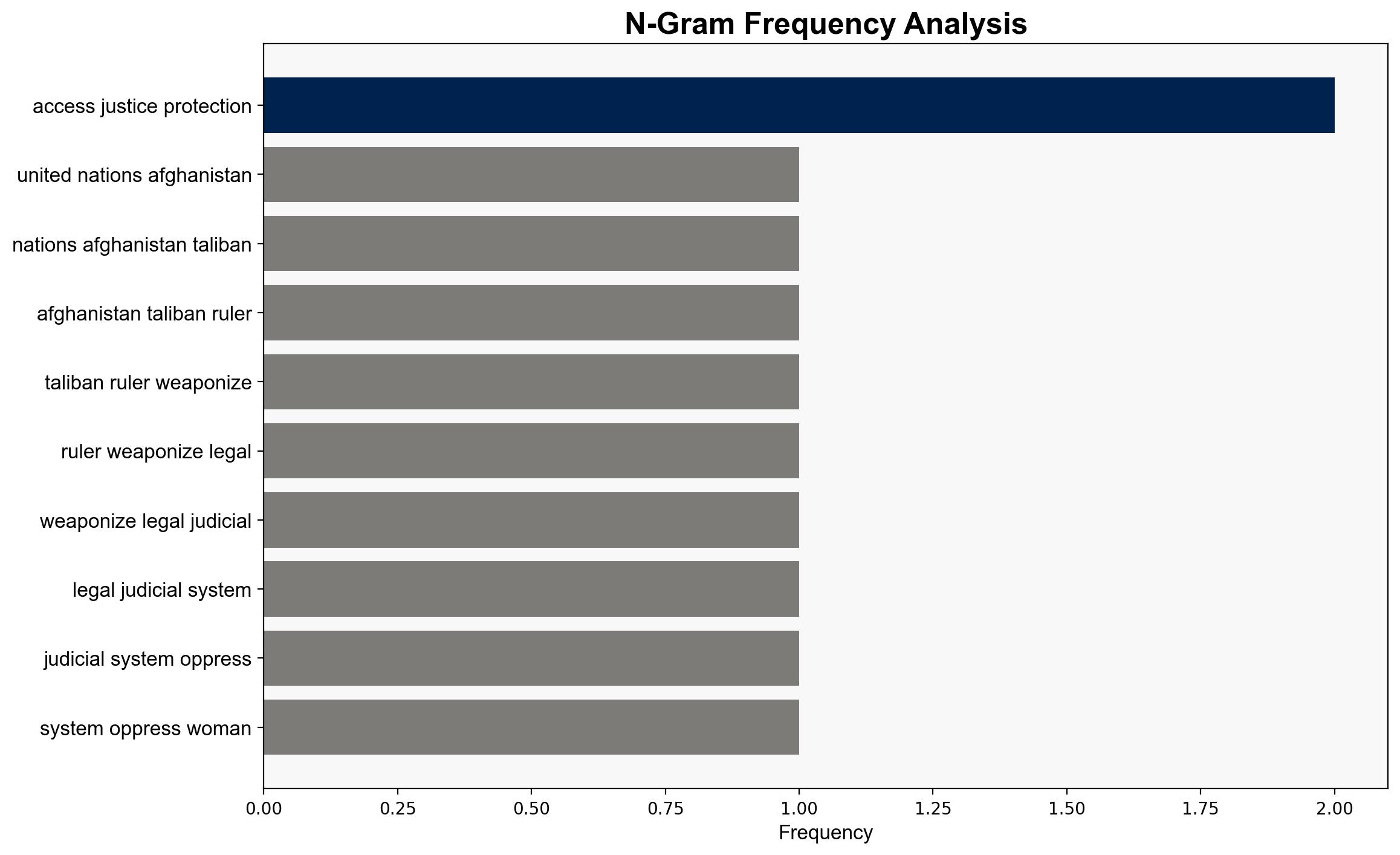Afghanistan’s Taliban have ‘weaponized’ the judicial system to oppress women UN expert says – NBC News
Published on: 2025-08-07
Intelligence Report: Afghanistan’s Taliban have ‘weaponized’ the judicial system to oppress women UN expert says – NBC News
1. BLUF (Bottom Line Up Front)
The Taliban’s judicial system is reportedly being used to systematically oppress women, with significant implications for human rights and regional stability. The most supported hypothesis suggests intentional systemic oppression under the guise of religious law. Confidence level: High. Recommended action: Increase international diplomatic pressure and support for human rights organizations operating in the region.
2. Competing Hypotheses
1. **Hypothesis A**: The Taliban are intentionally using the judicial system to oppress women, leveraging religious edicts to consolidate power and suppress dissent.
2. **Hypothesis B**: The Taliban’s actions are a result of a lack of legal infrastructure and training, leading to unintentional systemic bias against women.
Using Analysis of Competing Hypotheses (ACH), Hypothesis A is better supported by the systematic replacement of judges, the dismissal of female legal professionals, and the implementation of restrictive laws. Hypothesis B lacks support due to the deliberate nature of the legal changes and the Taliban’s historical patterns of behavior.
3. Key Assumptions and Red Flags
– **Assumptions**: Hypothesis A assumes the Taliban’s actions are deliberate and strategic. Hypothesis B assumes incompetence rather than intent.
– **Red Flags**: The Taliban’s refusal to grant visas to investigators and their dismissal of international criticism suggest an awareness of potential human rights violations.
– **Blind Spots**: Limited access to on-ground intelligence and potential bias in reports from external observers.
4. Implications and Strategic Risks
The oppression of women could lead to increased internal unrest and resistance, potentially destabilizing the region. This may also result in heightened international condemnation and sanctions, further isolating Afghanistan. The situation poses risks of radicalization and recruitment by extremist groups exploiting the human rights narrative.
5. Recommendations and Outlook
- **Mitigation**: Strengthen international coalitions to apply diplomatic pressure on the Taliban for human rights reforms.
- **Opportunities**: Support local and international NGOs focused on women’s rights and legal aid in Afghanistan.
- **Scenario Projections**:
– **Best Case**: International pressure leads to policy reforms and improved human rights conditions.
– **Worst Case**: Continued oppression leads to civil unrest and increased regional instability.
– **Most Likely**: Incremental changes with ongoing international pressure and limited Taliban concessions.
6. Key Individuals and Entities
– Richard Bennett: UN-appointed independent investigator on human rights in Afghanistan.
7. Thematic Tags
national security threats, human rights, regional stability, international law





